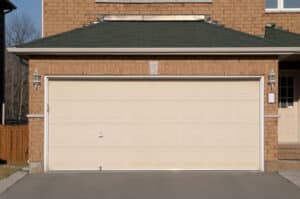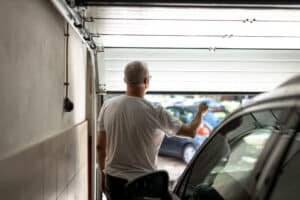How Can You Tell if the Garage Door Motor Is Failing in a Greenwood Village Home?
Table of Contents
- Understanding the Role of the Garage Door Motor
- Signs That Your Garage Door Motor Is Failing
- Why Early Detection Matters
- Professional Inspection and Repair
- Extending the Life of Your Garage Door Motor
- Don’t Wait for Complete Failure—Call Now!
A garage door is one of the most relied-upon features in a home. Whether you’re leaving for work in the morning or pulling in after a long day, you expect it to open and close smoothly with the press of a button. However, when the garage door motor begins to fail, small warning signs often appear before the system completely stops working.
At Select Garage Doors, we know how frustrating and inconvenient a failing motor can be. Recognizing the signs early can save you time and money and prevent you from being stuck with a garage door that won’t open when you need it most.
If you notice any of the following symptoms in your garage door in Greenwood Village, it might be time to have your garage door motor inspected. Don’t wait for a complete breakdown; contact us today to schedule a service call.
Key Takeaways
- A failing garage door motor often shows warning signs like unusual noises, sluggish operation, or random malfunctions.
- Addressing issues early helps prevent costly repairs, keeps your home secure, and avoids being stuck with a door that won’t open.
- Professional inspection is the safest way to diagnose whether repair or replacement is needed.
- Routine maintenance, such as lubrication, spring replacement, and yearly checkups, extends the life of your garage door motor.
- If you notice signs of trouble, scheduling service right away can save you both time and money.
Understanding the Role of the Garage Door Motor

Connected to either a chain, belt, or screw drive, the motor generates the force needed to move the heavy door. While the tracks, rollers, and springs guide and balance the system, the motor is what provides the actual motion.
Because of the heavy lifting required and frequent use, motors undergo natural wear and tear over time. Most garage door motors last around 10–15 years with proper maintenance, but their performance can decline sooner if neglected.
Knowing how to spot early problems is essential for homeowners in Greenwood Village who rely on their garage doors every day.
Signs That Your Garage Door Motor Is Failing
1. Unusual Noises During Operation
Garage doors make some noise when opening and closing, but grinding, buzzing, or humming sounds are red flags. A motor struggling to lift the door may produce louder-than-normal noises, sometimes resembling metal-on-metal friction.
- Grinding or clicking often means internal gears are worn out.
- Buzzing or humming may indicate the motor is running but not producing enough power to move the door.
- Popping or banging could point to loose parts inside the motor housing.
If these noises appear suddenly or grow louder over time, it’s a sign the motor is wearing out.
2. Sluggish or Delayed Operation
If your garage door used to open smoothly but now hesitates or moves much more slowly than before, the motor may be losing efficiency. A door that takes longer to respond after you press the remote is another warning sign. Sometimes this delay is mistaken for remote control issues, but often the real culprit is the motor struggling to engage.
3. The Door Reverses or Stops Midway
A healthy garage door should open and close completely unless interrupted by an object or safety sensor. If the door begins to reverse unexpectedly, stops halfway, or gets stuck, the motor may not be delivering enough consistent power.
In some cases, the limit settings need adjustment, but if those settings are correct and the issue continues, a failing motor is likely to blame.
4. Remote or Wall Switch Issues

Replacing batteries or reprogramming remotes should solve most minor issues, but if the problem persists, the motor is likely nearing the end of its life.
5. Burning Smell or Overheating
If you notice a burning odor coming from the opener, turn it off immediately. This smell often indicates overheated wiring or a motor straining beyond its limits. Continuing to use the opener in this state risks permanent damage or even a fire hazard.
A motor that overheats frequently may also shut itself down temporarily until it cools. If this happens often, it’s a clear sign the system is failing.
6. Excessive Vibration During Operation
A functioning motor should run smoothly with minimal vibration. If your garage door opener rattles or shakes excessively when operating, worn-out components inside the motor are likely the cause. Over time, these vibrations can damage other parts of the opener, leading to more expensive repairs if not addressed.
7. The Door Opens Randomly or Not at All
When motors start to fail, they may behave erratically. You might notice the door opening or closing randomly, or worse, refusing to open altogether. While electrical interference or faulty wiring can sometimes cause this, in many cases it’s a symptom of a motor that can no longer process signals correctly.
Why Early Detection Matters
Ignoring motor problems can quickly turn a small issue into a major inconvenience. A complete motor failure means your garage door may remain stuck—potentially trapping your car inside or leaving your home exposed.
Other reasons to address issues early include:
- Preventing damage to other parts: A failing motor can strain springs, belts, and tracks.
- Saving money: Garage door repairs are usually less expensive than a full replacement.
- Maintaining security: A malfunctioning garage door makes your home more vulnerable to intruders.
- Ensuring safety: A door that doesn’t respond properly can create dangerous situations for family members or pets.
Professional Inspection and Repair
Homeowners sometimes try to troubleshoot garage door motors themselves, but these systems involve heavy doors, electrical components, and complex mechanisms. DIY fixes can lead to further damage or safety risks.

- Test the motor’s electrical output.
- Check gear assemblies for wear.
- Adjust or replace drive systems (belt, chain, or screw).
- Inspect sensors, wiring, and remotes.
- Recommend whether repair or replacement is the best option.
By scheduling a professional inspection when you notice warning signs, you can extend the life of your garage door system and avoid unexpected breakdowns.
Extending the Life of Your Garage Door Motor
While no motor lasts forever, regular care helps maximize its lifespan.
Here are a few maintenance tips:
- Lubricate moving parts: Keep chains, rollers, and hinges lubricated to reduce strain on the motor.
- Check balance and alignment: A misaligned or unbalanced door makes the motor work harder.
- Replace worn-out springs: Springs counterbalance the weight of the door. Weak springs cause the motor to overexert itself.
- Schedule annual maintenance: Having a professional check the system once a year helps catch small issues early.
With proper upkeep, many garage door motors last well beyond a decade before needing replacement.
Don’t Wait for Complete Failure—Call Now!
A failing garage door motor doesn’t usually stop working overnight; it gives off warning signs such as unusual noises, slow operation, or random malfunctions. By paying attention to these signals, you can address problems before they leave you stuck outside or trapped inside your garage.
At Select Garage Doors, we’re committed to helping Greenwood Village homeowners keep their garage doors running smoothly. If you’ve noticed any of the issues discussed above, don’t put off getting them checked.
Contact us today to schedule an inspection or repair service, and let our experienced team restore the safety and convenience of your garage door system.
REQUEST A QUOTE

Our Services
Service Areas
Service Areas
WE SERVICE COLORADO SPRINGS, PARKER, LAKEWOOD AND SURROUNDING AREAS






